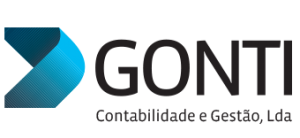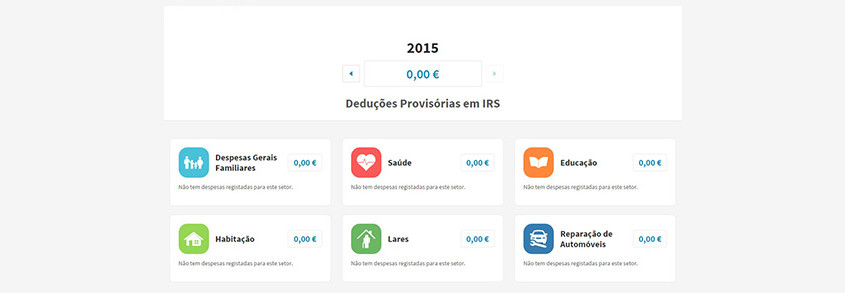Controlling the E-Factura
The validation process of deductible expenses on IRS has become electronic. However, there are still questions and problems that arise in the Portal of Finance. Learn how to control the E-Invoice to make the most of their expenses.
The repayment of the irs is one of the most anticipated moments by taxpayers, since the amount received is often to savings or to help pay some expenses. Taxpayers accustomed themselves every year, adding up the bills with various deductible expenses (housing, education, health, etc), but will no longer be necessary to go through the maze of bills and papers. The process has become all electronic with the E-invoice and when a taxpayer purchases a good or a service has even ask for the bill with the Tax Identification Number (TIN) if you want it to be considered for IRS purposes. The value should appear later on page E-Making available on the Portal of Finance. However, this implies that taxpayers have more work during the year to see if in fact the amounts spent and the required bills are declared by companies. And this surveillance effort is very important because it dictates what is going to receive or pay the IRS the following year. For those who have children, the expenses must also be controlled. Ideally, do not leave everything to the end and do this check regularly so as not to forget the bills and expenses you have and did. Learn what to make and how to control the invoices on the Portal of Finance.
1. You have to ask invoice with Tax Identification Number (TIN)?
Yes. Just be deductible expenses in IRS whose invoice has the NIF and is communicated electronically to the IRS.
2. It is up to the taxpayer communicate invoices to the tax authorities?
No. These are the companies that have to do so until the 25th of the month following the issue of the invoice. For example, if the taxpayer is today the grocery store, the company will have until November 25 to report the bill. However, if you notice that the invoice has not been submitted, the taxpayer may do so in the Portal of Finance. In this case, you should save up the bill.
3. The expenses of the children must have the NIF dependent?
No. According to AT, the bills may have both the NIF parents, as their children. In the divorce situation with joint custody of the children, the bills that are issued with the tax number of the children shall be shared equally between the parents.
4. it must ask password for their children in the Portal of Finance?
Yes. This is useful for invoices that are communicated with the NIF children. For example, if the children are in a private school, tuition invoices can be associated with the tax number of the children. Thus, the bills do not go to the E-Invoice taxpayer page, but your child. That is why it is important to ask for a password for their children, to ensure that the expenses of dependents are to be reported to the tax authorities. After making the request on the Portal of Finance, the password will be sent by letter to authenticate to the Portal of Finance. In addition, parents can create a direct access to the E-Invoice page of the children through the Finance Portal user management system. The system turns out to be quite ‘labor’, for example, for a family with two children, because there will be four pages to watch.
5. And it is found that has bills? Outstanding?
Often arise outstanding bills. It often happens because it is not defined the sector of services or the sale of assets. This happens when a company declares various economic activities to the tax authorities. For example, a supermarket may have various activities associated: in addition to trade, can have associated health, restoration or education. The taxpayer in this case indicate the sector. Invoices can also be pending if the taxpayer is dependent worker and have green receipts. In this case, the question arises on the site if the expenditure in question was or was not done under occupation.
6. After that healthcare bills can enter the IRS?
After some initial confusion and advances and retreats of the government, it stood to products which are 6% VAT is deductible and subject to a rate of 23% as well, but these will need to have a prescription to be accepted . It is up to taxpayers to say whether the product has or not prescription (there is a separate field in the Portal of Finance for this purpose). If the invoice has two types of well, for example, a drug and a shampoo 6% to 23% that was not prescribed by the physician, it is to say that the taxpayer has no revenue. Spending on spectacle lenses and ophthalmic lenses sold by entities which have an activity in the specific sector of the retail sale of optical equipment in specialized stores are tax deductible.
7. What expenses may be deducted on IRS as education expenses?
The cost of textbooks, payment of nurseries, gardens-of-childhood, milk kitchens, schools, educational institutions and other educational services can be deducted from the IRS. The cost of nannies and tutors are also deductible. The? Case of school supplies is different, since these expenses are no longer deductible. So, notebooks, pencils, pens, etc., fail to tell the IRS.
8. The school meals are deductible?
This is one of the issues that has generated more confusion. Finance ensure that this type of expenditure is accepted, but there are problems when meals are not provided by schools, but by municipalities or by external companies. The problem arises because these entities often do not have an activity code (CAE or classification of economic activities) linked to education. This makes the expense not go immediately to the education category. On the other hand, in the case of external companies providing school meals through municipalities, VAT for this service is 23% and is not accepted. There is, therefore, expenses that are accepted and others that are not currently being accepted.
9. What are the familiar overhead?
In the category of household expenditures fit all those who do not have a specific deduction. The bills of electricity, water, gas, clothing, supermarket all go for that category. The limit is 250 euros, so it is very easy achieve it. Most taxpayers already have probably reached this ceiling long. Here we must be aware that if the school books or medicine, for example, are purchased at a supermarket along with other shopping, the taxpayer must ask for separate bills. Otherwise, the costs will stop all the same category, i.e., household expenses. In this case, taxpayers can go out to lose, since the ceiling of 250 euros is easily attainable.
10. As the bills? Public health entities? And education are communicated?
Public authorities of health and education are not required to pass bill. The amount paid will be reported to the IRS by those entities by the end of January of the year following that in which the expenditure was made.
11. They should be stored invoices?
The best thing is to continue to keep the bills, especially those in which the taxpayer is to be included in the Finance Portal.
12. And who does not have Internet?
This is another of the issues that most times has been raised by the experts, who criticize the fact that this system, fully electronic, power harm those who do not have access to the Internet. Ask for help from a family member, expert or from the tax office are some of the hypotheses.
News source : Ecomómico



